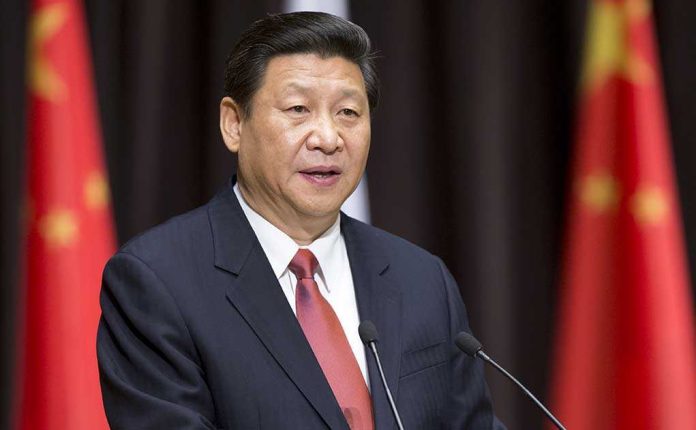
When a nation’s leader demands that faith itself must bow to state authority, what happens to belief, conscience, and the very soul of a society?
Story Snapshot
- Xi Jinping orders stricter legal control over all religious expression in China
- The “Sinicization” project aims to subordinate faith to the Communist Party
- Law enforcement will be used as a tool to reshape or suppress religious communities
- The move signals a new era of state intrusion into the personal realm of belief
Xi Jinping’s Mandate: Faith Must Serve the Party
Chinese President Xi Jinping made global headlines after instructing his Politburo that religious affairs must be met with “strict law enforcement.” This directive is not a mere policy tweak. It is the next phase of a sweeping project to “Sinicize” all faiths—effectively requiring every church, mosque, temple, and shrine to operate under the dictates of the Communist Party. By announcing this agenda at the highest level, Xi has signaled that the Party’s control is to extend beyond politics and economics, reaching into the individual’s relationship with God, tradition, and conscience.
Xi’s language leaves little room for ambiguity. The project of “Sinicization” is not about cultural blending or peaceful coexistence; it is about subjugation. The state now asserts that spiritual life itself must serve the broader goals of socialist ideology. For millions of Chinese people—be they Christians, Muslims, Buddhists, or practitioners of folk religions—this is a direct challenge to the autonomy of their faith traditions. The very notion of sacred authority is being forcibly rewritten to recognize only one supreme power: the Chinese Communist Party.
Religious Freedom in the Crosshairs
The new push for “strict law enforcement” means that religious communities in China are entering a period of profound uncertainty. Authorities are now empowered to scrutinize, restrict, or even dismantle organizations that fail to conform to Party guidelines. Leaders and worshippers can expect intensified surveillance, pressure to rewrite sermons, and the forced removal of symbols or texts deemed inconsistent with official ideology. Even private gatherings and online expressions of faith are unlikely to escape the widening net of state control.
The consequences are not hypothetical. Previous crackdowns have seen church crosses torn down, mosques repurposed, and Buddhist temples placed under heavy surveillance. Now, with law enforcement at the center of the campaign, religious leaders face a stark choice: submit to Party oversight or risk prosecution. This climate of fear and uncertainty does not just stifle dissent; it erodes the trust and fellowship that are essential to any religious community.
The Stakes for Society and the World
The implications of Xi’s directive extend far beyond China’s borders. The forced subordination of faith to the state challenges a core principle of human rights: the freedom of belief and conscience. For Americans who value the separation of church and state, the developments in China are a cautionary reminder of what happens when government becomes the ultimate arbiter of spiritual truth.
Observers in the West must grapple with a difficult question: Can any society truly thrive when its citizens are told that their deepest convictions must be reshaped by political decree? The American conservative tradition has long held that the power of faith lies in its independence from the state. When that independence is destroyed, what remains of the individual’s liberty, dignity, and sense of purpose?
Faith on Trial: What Comes Next?
Xi Jinping’s call for “strict law enforcement” over religion marks a turning point. The world will soon witness whether China’s faithful will acquiesce, adapt quietly, or find ways to resist. History is replete with examples of religious communities surviving—and sometimes thriving—under conditions of persecution. The coming years will reveal whether the Chinese state can truly command the hearts and minds of its people, or whether the ancient power of belief will prove more resilient than any edict.
Sources:
President Xi sees religious crackdown as only way for ethnic, social harmony
Religion must align with law for ethnic and social harmony in China, Xi says



